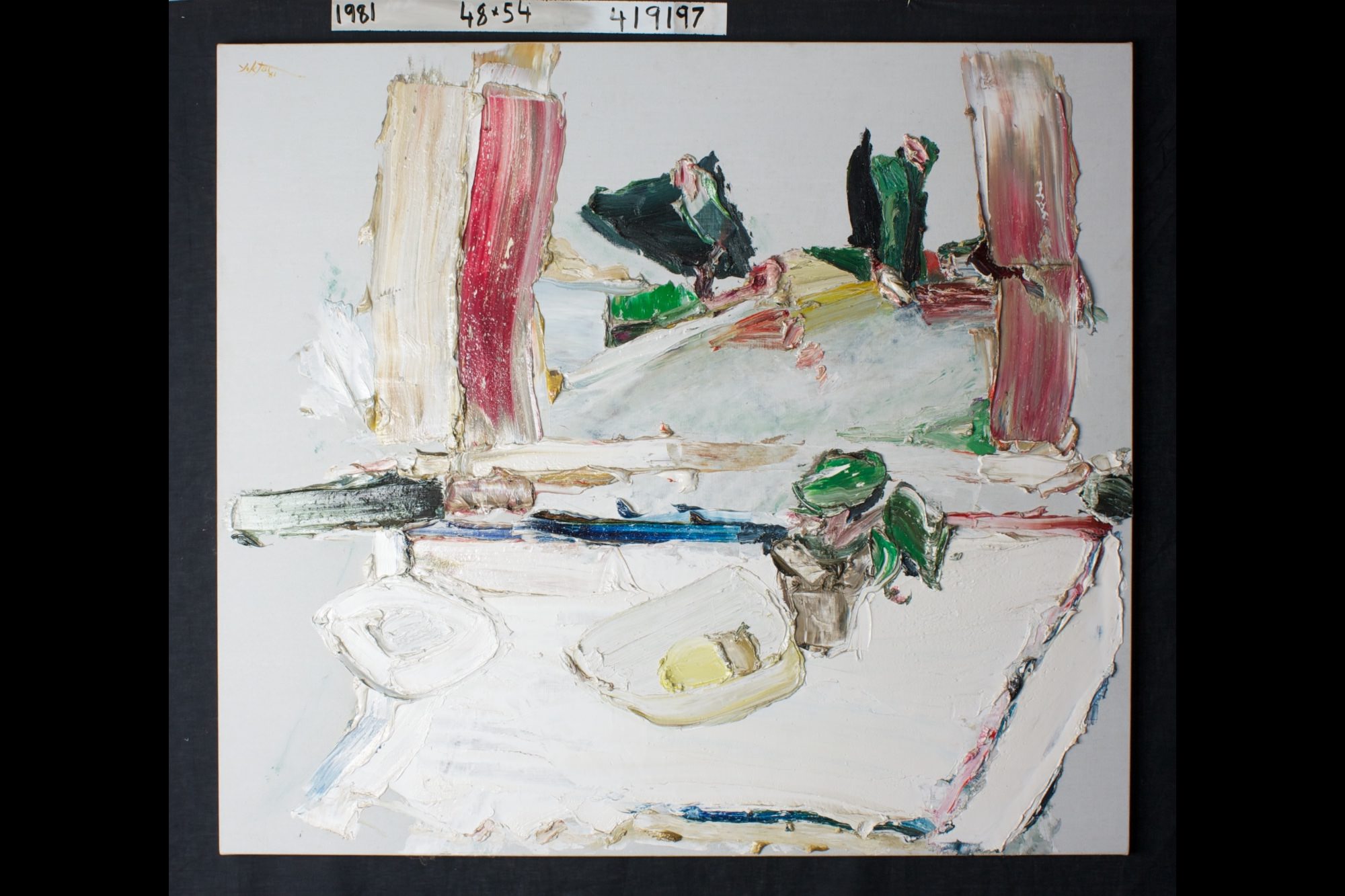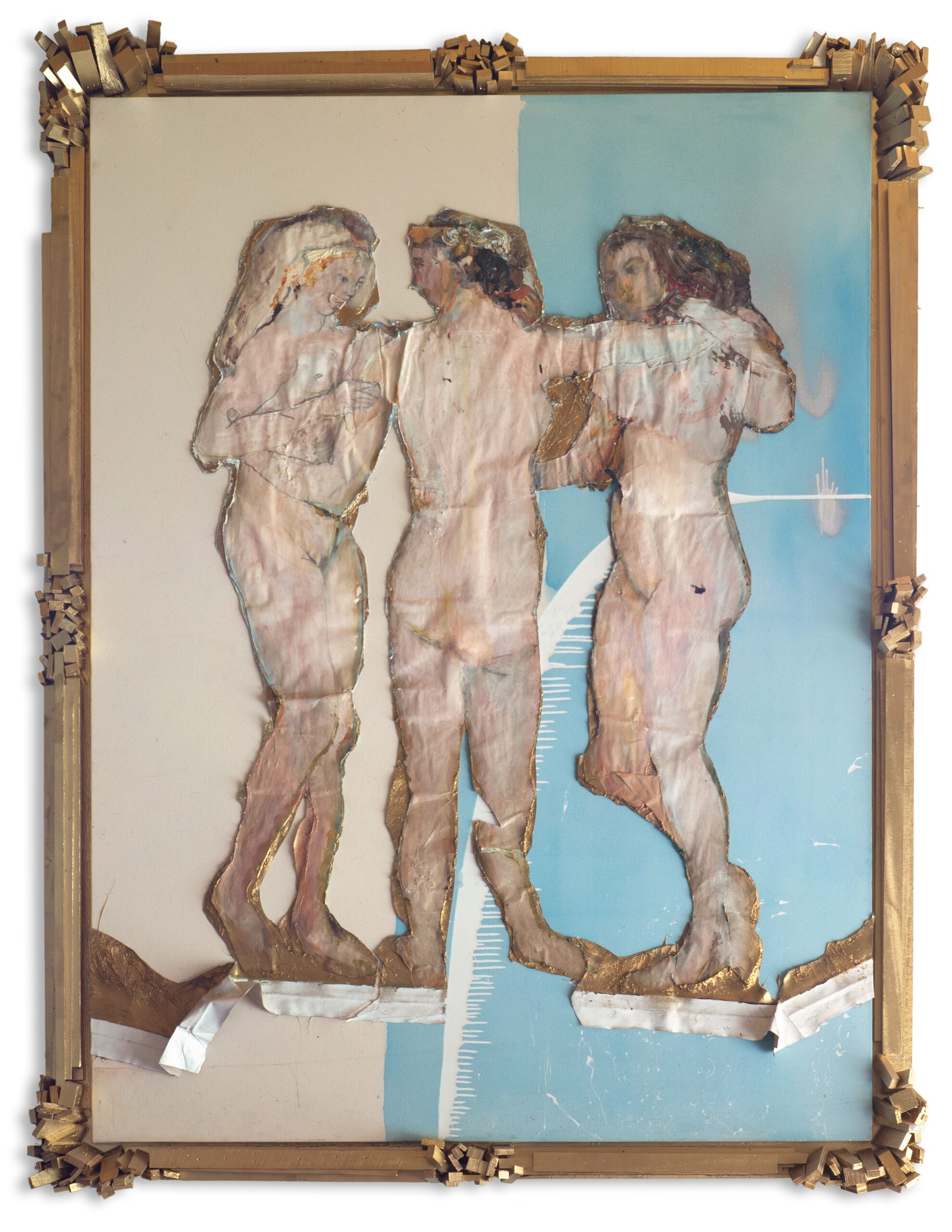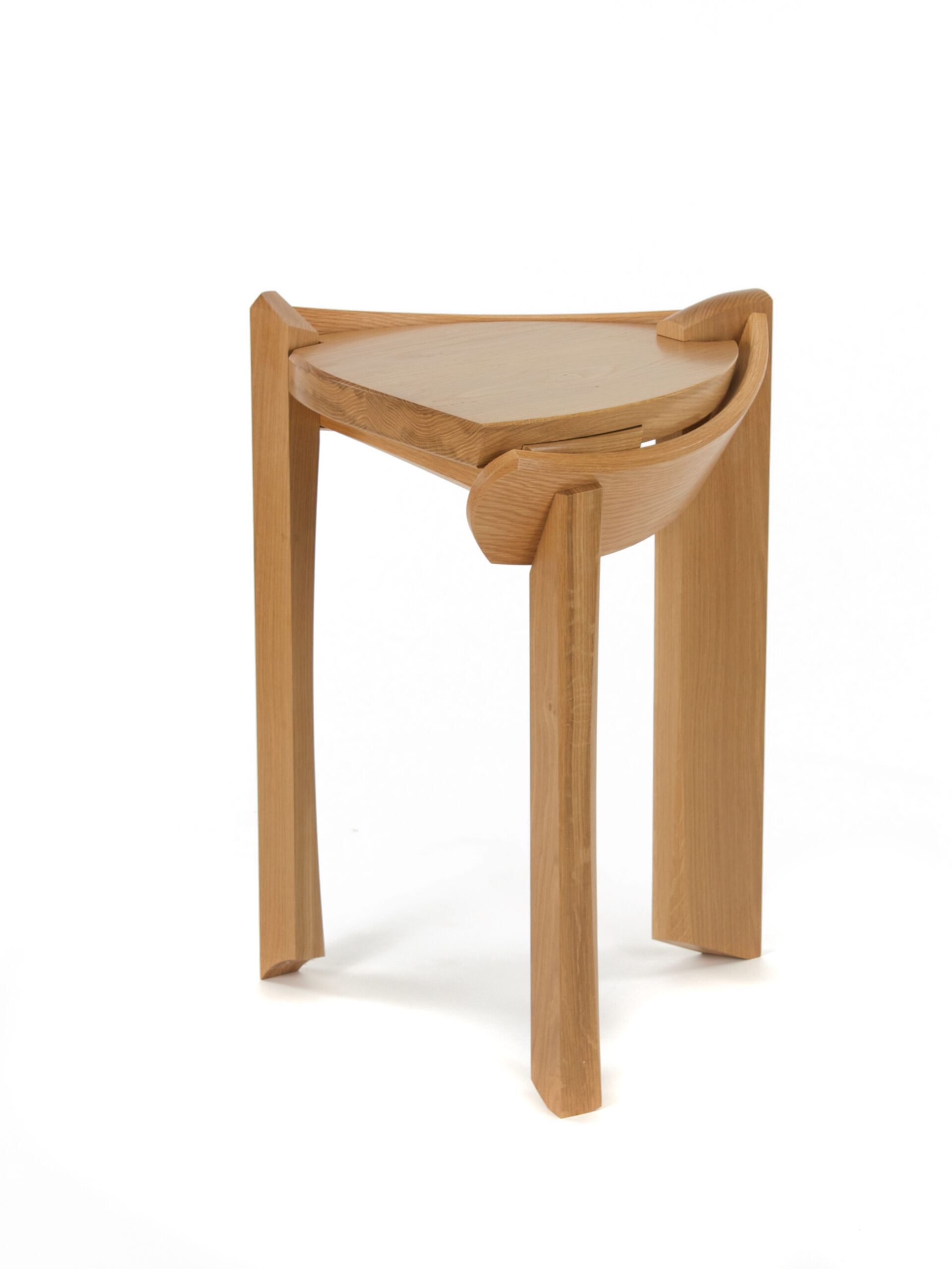
[caption id="attachment_73615" align="alignnone" width="2000"] "Beauty," 1981, oil on canvas, 48 x 54 inches, by Manoucher Yektai.[/caption]
"Beauty," 1981, oil on canvas, 48 x 54 inches, by Manoucher Yektai.[/caption]
By Michelle Trauring
The first stroke was a pile of paint that he’d throw at the floor, crashing onto the canvas lying at his feet.
What came next was aggressive. It was dynamic. And for a young Darius Yektai, it could be intense to watch as he sat in his father’s studio, learning his language, his poetry.
The artist was, and still is, Manoucher Yektai — once a legend among abstract expressionists, his name uttered in the same breath as Willem de Kooning and Jackson Pollock.
This is no longer the case. But that is about to change.
Opening Thursday, October 21, at Guild Hall is a group exhibition that marks the first of its kind — one that traces the artistic legacy that Manoucher Yektai first passed down to his eldest son, Nico, and then to Darius, who have grown into creatives in their own right.
They are simply calling it “Yektai.”
“As my brother and I start to stand up on our feet out here and in the city, and our work is establishing itself, it becomes more and more of a proper show, where it’s the father and the sons together,” Darius Yektai said. “My brother’s work and my work come from our father’s work so, in a way, our work is an extension of his work. He was everywhere up until about ’81, ’82, but now he’s not that well known. He stopped showing in ’85.
“For 30 years, he’s been painting, and he hasn’t been showing. Now, the public gets to see his later work. It would be like Monet without ‘Water Lilies’ and Rousseau without the jungle. It’s not a clear picture of the artist.”
[caption id="attachment_73617" align="alignright" width="447"] "Three Graces: After Rubens," 2013-16. Oil, gouache, and pencil on linen, canvas and wood, 108 x 84 inches, by Darius Yektai.[/caption]
"Three Graces: After Rubens," 2013-16. Oil, gouache, and pencil on linen, canvas and wood, 108 x 84 inches, by Darius Yektai.[/caption]
Born in Iran sometime around 1921 — “We’re not quite sure what year,” Nico Yektai explains — Manoucher was a kid full of promise. He was bright, did well in school and always had a strong sense of individuality.
He began writing poetry at a young age, which has continued throughout his life, and it wouldn’t be until his early 20s that he discovered painting.
“He immediately understood the connection of what he was trying to do in poetry and the possibility of doing it with paint,” Nico Yektai said. “He became obsessed and wanted to study painting, of which there were very limited opportunities to do in Iran in those days.”
With his sights set on Paris, Manoucher Yektai found himself derailed by World War II and, instead, headed for the United States — first Los Angeles in 1944, and then New York. He would eventually make it to France, but quickly returned to the un-replicable vitality he had found on the East Coast.
“That period — the ’50s, right around the war — was when the art world shifted over and the big boys started. Abstract expressionism broke through the ceiling and they created something new. And they became giants,” Darius Yektai said. “But my father did not take care of his career.”
After Life magazine featured de Kooning, Yektai was next — but he never returned their calls. The National Society of Arts and Letters tried to induct him 16 years in a row, but he refused to answer their invites.
So they stopped calling and sending, and Yektai kept painting.
“He was in his studio doing his work. Everything else — showing it, standing up next to it, going to parties — he missed that angle,” Darius Yektai said. “He was just in the studio. He’d be in the studio with de Kooning and Motherwell and Kline, and talk art with Pollock. He came at it from a different place.”
And so did his children, who realized from an early age that their family “was a bit different,” the youngest Yektai recalled. Vacations never took them to the Caribbean. They would travel to the Europe, spending hours upon hours in museums, or picnicking in the countryside. “Club Med was not in the cards,” he said. “There was an education, always, and a natural existence.”
Both brothers discovered art in their own way, at their own pace. At first, they struggled — Nico does not consider himself a natural drawer, and Darius had trouble finding his own language, being so heavily influenced by the family patriarch.
“I specifically tried not to paint like him, but it’s part of me and I can’t deny it because I grew up with it,” Darius Yektai said. “It isn’t just that I know his language — that I know what his tree looks like, or what his lemon and flowerpot look like — but it was all the art history we spoke about, and I think our understanding of art is similar.”
Nico Yektai also engaged in similar conversations, but was coming at art from a completely different perspective. He was thinking like an artist without the means of expressing himself, until he found woodworking and concrete.
[caption id="attachment_73618" align="alignright" width="428"] Pedestal Table #5, 2006, White Oak, 30 x 20 x 20 inches, by Nico Yektai.[/caption]
Pedestal Table #5, 2006, White Oak, 30 x 20 x 20 inches, by Nico Yektai.[/caption]
“I had an interest, always, in furniture. Part of that evolved with my dad, in that we would built some very rough furniture for the house that we would live with,” he said. “All of a sudden, everything I had processed on my own, I started to see how to express it. It wasn’t my dad’s nature to heap praise. If I was building crap and he saw it as crap, he would say it was crap. That’s just what he would do.
“But when he did recognize something in it, that I was searching for something larger, that I’d left evidence of that search in the piece, he saw that I kind of understood,” he continued. “I understood the pursuit, which is to always look for something more and different and original in yourself, and then to present that to the world through your work. I think he was relieved and, frankly, quite excited.”
Darius Yektai saw that, too — how his older brother’s unique language formed, and their father “jumped right in,” he said.
“I, on the other hand, experiment and chase dead ends and develop personal philosophy on paintings and it goes in a different way,” he said. “My father reserved the right to not accept me as an artist and I had to actually prove myself, and he had to see the devotion and the understanding and the quality. It actually might have been a game because, in the end, I think I was one of his favorite artists.”
In recent years, the younger son has taken on the task of translating his father’s poetry from Farsi to English, with the help of a professor at Brown University.
“He always figured it would happen the way Rumi’s poetry took 700 years for a scholar to come along and translate it, and then a poet to come along and turn it into English poetry, and from that, it’s been translated into every language in the world,” Darius Yektai said. “But I was like, I’m not gonna be around in 700 years and I wanted to learn this part of my father.”
As the project continues, Darius Yektai said he can see the connection between his father’s paintings and poetry clearer than ever — and the way it has manifested in his brother’s work, and his own.
“My father’s paintings are the way a poet builds up poems with words,” Darius Yektai said. “He builds up his paintings with strokes. My brother’s furniture is built up out of blocks. My work is built up out of layers. Watching my father be an artist allowed me to see that it’s possible. I knew that I wasn’t coming out of the gate as perfectly formed. I feel like, just now, I’m really standing out and my stride is about to take off. And, in a way, we’re doing that together.”
“Yektai,” featuring work by Manoucher Yektai and his sons, Nico and Darius, will open with a reception and poetry reading on Saturday, October 21, from 5 to 7 p.m. at Guild Hall in East Hampton, and remain on view through December 31. Admission is free. For more information, call (631) 324-0806 or visit guildhall.org.